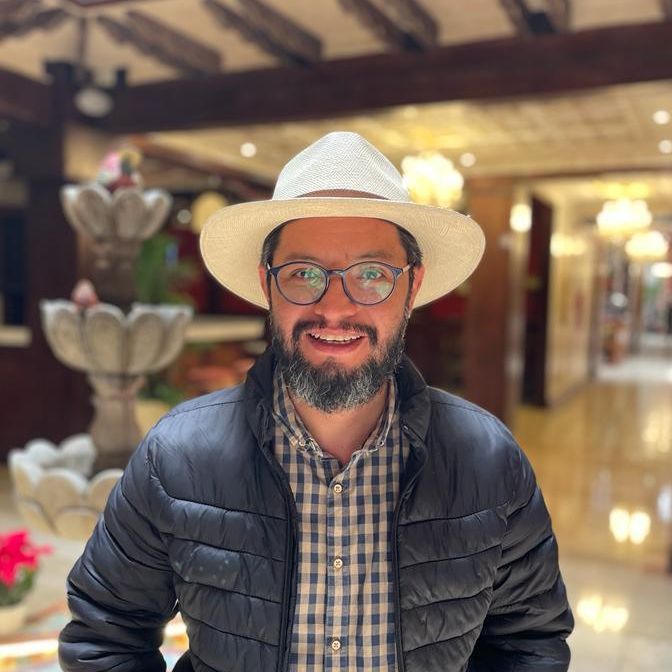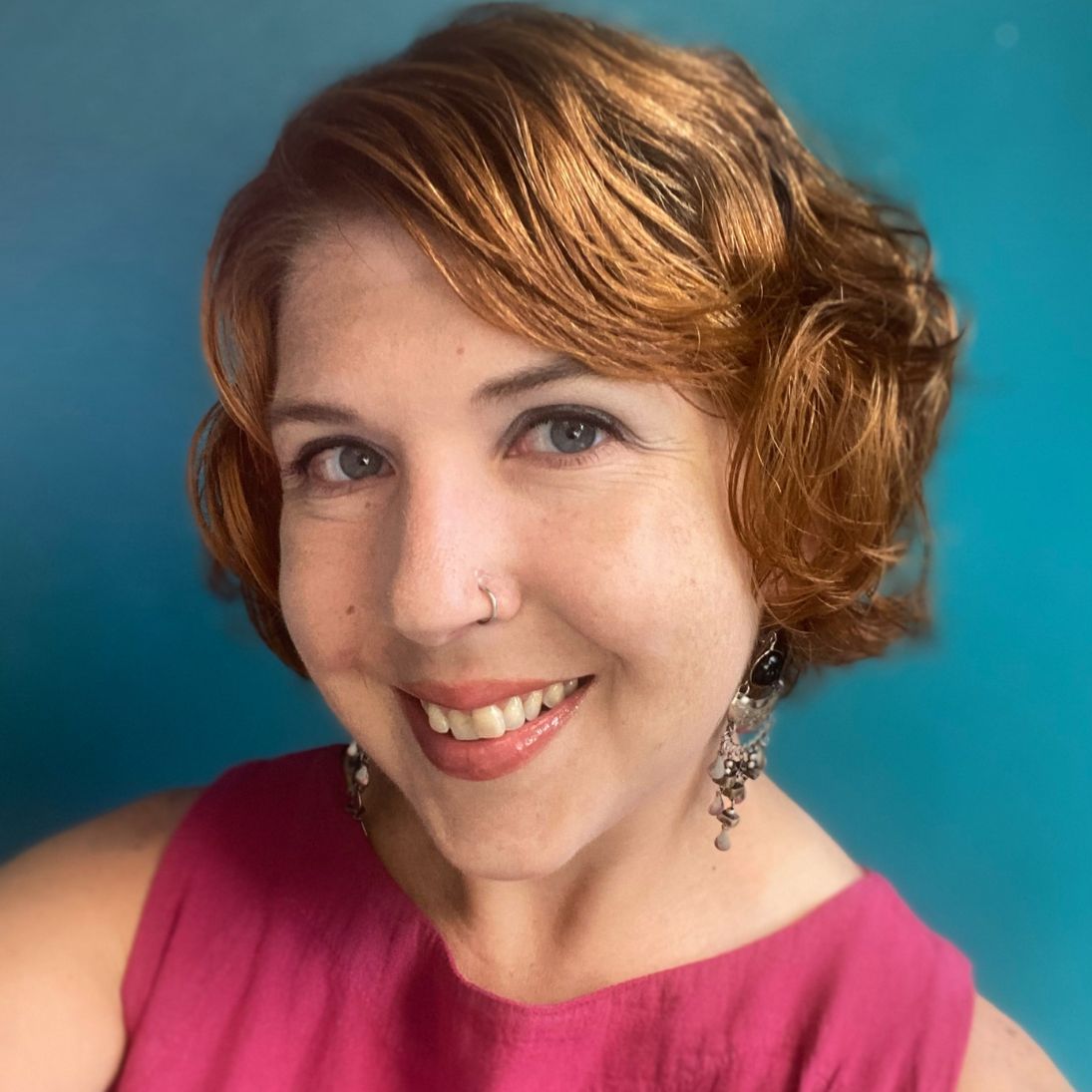
Four Poems from El viento a contrapelo de mi sombra / The Wind Against My Shadow
By Santiago Vizcaíno
Translated by Kimrey Anna Batts
When You No Longer Die
When you no longer die,
I’ll bring you back home,
you’ll touch the skin of joy
and taste of its fruit.
The ocean will swallow the Sun to extinguish it.
When you no longer die,
we’ll no longer say man or woman
male or female.
The children of my children will be dead.
Not even the image of that night
when you crashed into infinity
—like a comet—
will remain.
When you no longer die,
a rock will contuse the earth’s crust,
or perhaps fire will destroy the world
with its layer of smoke.
When you no longer die,
it’s as if to say a tomorrow
where we will inhabit the nothingness
like a kerosene lamp in a gold mine.
We’ll laugh about
the cruel joke of your childhood,
about history’s baldness,
about the perfect weather for solitude,
like two defeated animals
000000lying on the ethereal grass.
[punishment]
no, mama, I cried, and water poured in through my nose
and all I could hear was the deathly silence of the
waves
lapping against futility.
no, mama, I cried, my body frozen like
a severed tongue,
0000000like a contracted hand, like the rictus
of silence,
0000000like a dog’s tail, like a frightened lizard.
no, mama, I cried, and my hair ballooned over
the water, extending
000000000000along its surface.
and then your hand pushed me to the bottom
and then everything clouded over.
no, mama, let me surface to air, to mistakes, to
play,
to the possibility of tears,
and the virtue of innocence.
no, mama, not the tank, not the water,
0000000I’m three years old,
think, we’re alone,
I’m a fish bleeding out the nose,
I’m a badly-behaved puppet,
I’m a piece of live meat,
I’m the skylight for your misfortunes.
here I lie, mama, and this isn’t an epitaph,
0000000the light beneath the water isn’t a sign,
my bare feet slip towards stillness,
I don’t know how to swim,
I don’t know how to cry without breathing,
I don’t know how to ask for forgiveness
because it’s not my fault
I was born.
Never Again
You won’t drink from black waters
as a fountain for your pain.
Never again.
You won’t say exile,
guilt
or melancholy.
You won’t place trust
—not even aimlessly—
in flattering words.
You’ll be welcome at the table
0000000and this time the table will be full.
The bread won’t be sliced by misery
and the substance of failure won’t be so harsh.
The downpour will turn to words dripping down,
ceaselessly,
absorbed into glistening sand.
Every prayer will be a prophecy.
Each scar will be your map and your guide.
Humiliation will not be your path.
It will be said that you’ve been broken by time
and that your spirit,
which was once stupor and anguish,
has been overtaken by a terrible hope.
But you won’t kneel.
Never again.
Absence
To José Fernando
I wait. I never wait but I wait: your slight, lukewarm body. Your smile like a lighthouse. Your hand latching on to me. Your way of calling me father. Your skin as white as foam. My rage is gone and there is no black hole inside, deep inside, pinching at my crying muscle. All that’s left is memories of games and laughter turned to clouds, shadows of distant kisses. When I see you again, you’ll have grown like new grass, like a strong and solid trunk, like a stem, like a tree root. This absence has no justification. But perhaps the silence that unites us —crying out like a solitary deer, filling my home with grief— will mold us into two intertwined branches. Do you remember when you asked me, “Daddy, why so many books? Why so many books in your house, like paintings to look at?” I told you that books are ways to escape, ways to seek company. I don’t know if you understood. You were just seven, and you looked at me in that strange way that showed a future filled by the ocean. I always knew it. I knew that you would be a child of the sea, that the ocean would transform you into a man. I hope you understand, my son, that the ocean is the desire of all men. And I hope that one day I can teach you what the ocean means, what is held by each mermaid, what is unbearable. You will see the ocean each day, and that comforts me. A man can never tire of the ocean. Cities are terrible things that turn people into miserable zombies, but you will always have the sea. I’ll continue to miss you. I’ll think how, each day when you go to school, you’ll look out at the ocean and think of your father, full of books and sorrow. Less alone, every night, less alone, but thinking about you, about your slight body growing and becoming stronger, so strong, like the silence of the mermaids.
Cuando ya no te mueras
Cuando ya no te mueras,
te traeré de regreso a casa,
tocarás la piel de la dicha,
lamerás su fruto.
El océano se tragará el Sol para apagarlo.
Cuando ya no te mueras,
ya no se dirá hombre ni mujer
ni macho ni hembra.
Los hijos de mis hijos habrán muerto.
No quedará siquiera la imagen de esa noche
en que atropellaste
como un cometa
el infinito.
Cuando ya no te mueras,
una roca magullará la corteza de la tierra,
o quizá el fuego destrozará el mundo
con su capa de humo.
Cuando ya no te mueras,
es decir un mañana
en que habitaremos el vacío
como una lámpara de kerosén en una mina de oro,
estaremos tú y yo,
riéndonos del chiste cruel de tu infancia,
de la calvicie de la historia,
del clima perfecto de la soledad,
como dos animales vencidos
000000sobre la hierba etérea.
[castigo]
no, mama, grité y el agua se me introducía por la nariz
y no escuchaba sino el silencio moribundo de las ondas
sobrevolando lo inútil.
no, mamá, grité, y el cuerpo se helaba como una lengua cortada,
00000000como una mano crispada, como el rictus del silencio,
00000000como la cola de un perro, como una lagartija con miedo.
no, mamá, grité, y el pelo se ensanchaba sobre el agua y se esparcía
00000000a través de la superficie,
y entonces tu mano empujaba hasta el fondo
y entonces todo se nublaba.
no, mamá, devuélveme el aire, la torpeza, el juego
la posibilidad del llanto,
la virtud de la inocencia.
no, mamá, el tanque no, el agua no,
00000000soy un niño de tres años,
piensa, estamos solos,
soy un pez que sangra por la nariz,
soy un malcriado títere,
soy un trozo de carne viva,
soy el tragaluz de tu desdicha.
aquí yazgo, mamá, esto no es un epitafio,
00000000la luz bajo el agua no es una señal,
mis pies desnudos resbalan hasta la quietud,
no sé nadar,
no sé llorar sin respirar,
no sé pedir perdón
porque no tengo culpa
de haber nacido.
Nunca más
No volverás a beber de las aguas negras
como fuente del dolor.
Nunca más.
Ya no dirás destierro,
culpa
o melancolía.
Ya no confiarás,
ni vagamente,
en las palabras que te adulan.
Serás bienvenido a la mesa
00000000y la mesa estará esta vez llena.
La congoja ya no cortará el pan
ni será duro el material del fracaso.
Verás el aguacero como palabras que gotean,
incansablemente,
hasta absorberse en una luminosa arena.
Toda oración será una profecía.
Cada cicatriz será tu mapa y tu guía.
Nunca más la humillación como sendero.
Se dirá que has doblegado al tiempo
y que el ánimo,
que antes era sopor y angustia,
ha sido ocupado por una temible esperanza.
Pero no te arrodillarás.
Nunca más.
Ausencia
A José Fernando
No espero. Nunca espero pero espero: Tu cuerpo menudo y tibio. Tu sonrisa como un faro. Tu mano que me toma como a un asidero. Tu manera de decirme padre. Tu piel tan blanca como espuma. Ya no tengo rabia ni se forma un agujero adentro, muy adentro, como apretando el músculo del llanto. Ya solo recuerdos de juegos y risas que se tornan nubes, sombras de lejanos besos. Cuando vuelva a verte, habrás crecido como hierba nueva, como tronco duro y sólido, como tallo, como raíz de árbol. No se puede justificar la ausencia. Pero es posible que el silencio que nos une, que grita como un venado solitario, que llena mi casa de dolor, haga de nosotros dos ramas que se entrelazan. Recuerdas cuando me preguntabas por qué los libros, papá, por qué tantos libros en casa como cuadros para mirar. Yo te decía que los libros eran maneras de escapar, maneras de no estar solo. No sé si lo entendiste. Tenías apenas 7 años. Solo me miraste con esa extrañeza tuya que decía que todo tu futuro estaría poblado de mar. Siempre lo supe. Supe que quería un hijo del mar, que el mar te iba a transformar en un hombre. Ojalá entiendas, hijo mío, que el mar es también un deseo de todos lo hombres. Y ojalá algún día te pueda enseñar lo que el mar significa, lo que cada sirena guarda y es insoportable. Verás el mar todos los días, eso me reconforta. Un hombre no se puede cansar del mar. Las ciudades son horribles y convierten a las gentes en miserables zombies. Pero tú tendrás el mar todos los días. Yo seguiré extrañándote. Pensaré que cada día, cuando salgas del colegio, mirarás el mar y pensarás en tu padre, lleno de libros y angustias. Menos solo, cada día menos solo, cada noche, menos solo, pero pensando en ti, en tu cuerpo menudo creciendo y haciéndose fuerte, muy fuerte, como el silencio de las sirenas.

Santiago Vizcaíno is an Ecuadorian writer who has published poetry, short stories, novels and essays. He currently directs the Publications Center at the Pontifical Catholic University of Ecuador. In 2020 and 2021 he curated the Quito International Book Fair, and 2022 he served as juror for the Casa de las Americas Award in Cuba.
These translations are taken from his most recent publication, a poetry collection entitled El viento a contrapelo de mi sombra (The Wind Against My Shadow).

Kimrey Anna Batts is originally from East TN. She later moved to Ecuador —where she lived for many years following graduation from the University of Michigan— and she currently resides in Mexico, where she works as a freelance translator and dutiful servant to five cats and two dogs. Her translations of Latin American poetry and fiction have appeared in a variety of literary journals, and her full-length publications include work by Santiago Vizcaíno, Antonio Ramos Revilla and César Eduardo Carrión.
Poesía en acción is an Action Books blog feature for Latin American and Spanish poetry in translation and the translator micro-interview series. It was created by Katherine M. Hedeen and is currently curated and edited by Olivia Lott with web editing by Paul Cunningham.